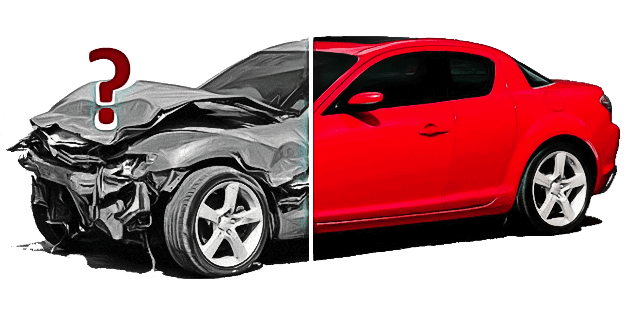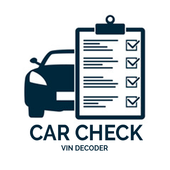10 things what to look for when buying a used car!
Buying a used car can be a very exciting experience. But there are a few key things you need to do to avoid making costly mistakes.

Buying a used car can be a very exciting experience. But there are a few key things you need to do to avoid making costly mistakes.

First of all, check out the vehicle’s history by asking for the Carfax report from the seller. And if possible, take it to an expert mechanic for inspection before you buy it. Checking the engine and transmission fluids is also essential when buying an older model car.
Additionally, make sure that you find out about any recalls or other safety issues that might affect your purchase – this way you can get an idea of what to expect in the future when repairing or maintaining your vehicle. Burning rubber? Check out these ways to save cash on gas in 2024!
Buying a used car can be a daunting task because of the uncertainty of what condition the car will be in. We offer you some advice on how to find the best deals and tips for making your purchase.
So, you’ve decided that it’s time to purchase a used car and you want to get the best deal possible. We know it can be difficult to find out where to start, so we made this guide just for you!

Buying your first car is an exciting and sometimes daunting experience. It’s a significant milestone, and understanding the process will help you make the best decision possible. Fortunately, we’ve got you covered with a step-by-step guide to help you navigate your first car purchase with ease!
The foundation of a successful car purchase is thorough research. Start by identifying what you need in a car: budget, size, fuel efficiency, and safety features. Use online resources to compare models and read reviews to find a vehicle that meets your criteria. Websites like Edmunds, Kelley Blue Book, and Consumer Reports can provide invaluable insights into your potential choices.
Before making any decisions, it’s crucial to have a reliable mechanic inspect the vehicle. Schedule a test drive and bring your mechanic along to identify any potential issues. This step ensures you’re not investing in a car that might have hidden problems. It’s wise to test drive the car at least twice under different conditions to get a feel for its performance and comfort.
Determine how much you can afford to spend on your car, factoring in monthly payments, insurance, maintenance, and fuel. Avoid overstretching your finances; a general rule is to keep your monthly car payment under 15% of your monthly income. Budgeting tools and calculators available online can help you set a realistic financial plan.
The car market offers a plethora of options, and it’s essential to shop around for the best value. Utilize online platforms like CarGurus, AutoTrader, and Cars.com to compare prices and find the best deals at dealerships near you. Remember to consider certified pre-owned vehicles, which often come with warranties and lower prices than new cars.
To find the car that suits you best, test drive several models. Each car feels different, and what might seem perfect on paper could be less appealing in reality. Pay attention to the car’s comfort, handling, and features. Don’t hesitate to ask questions about the vehicle’s history and performance during the test drive. Here is the overview of 10 most reliable Mercedes-Benz vehicles.
Explore different financing options before committing to a purchase. Compare interest rates from banks, credit unions, and dealerships. Pre-approval for a loan can give you a better idea of what you can afford and strengthen your negotiating power.
Negotiating the price of your car is a crucial step. Research the fair market value of the car you’re interested in and use this information to negotiate effectively. Don’t be afraid to walk away if the deal doesn’t meet your expectations.
Before finalizing your purchase, obtain a vehicle history report from services like Carfax or AutoCheck. This report provides important information about the car’s past, including any accidents, ownership history, and title status. It’s a vital step to ensure you’re making a sound investment.
Be sure to understand the warranty coverage provided by the manufacturer or dealership. Consider purchasing additional coverage if necessary. Additionally, shop for car insurance that offers the best protection for your new vehicle at a competitive rate.
Once you’ve agreed on a price and confirmed the car’s condition, it’s time to finalize the deal. Carefully review all paperwork, ensuring that all terms are clearly stated and understood. Ask for clarification on anything that seems unclear before signing.

Deciding whether to lease or buy a vehicle is a significant decision that depends on your financial situation, lifestyle, and driving habits. Leasing a vehicle offers several benefits, such as lower monthly payments and the ability to drive a new car every few years. However, it also comes with drawbacks, such as mileage restrictions and the inability to own the car at the end of the lease term.
On the other hand, buying a new or used car allows you to build equity in a vehicle and customize it as you wish. While this option might seem more advantageous, it involves higher upfront costs, including a down payment, potentially higher monthly payments, and ongoing maintenance expenses. The decision between leasing and buying ultimately comes down to your personal preferences and long-term financial goals.
Financial Goals: Evaluate your budget and long-term financial plans. Leasing might be ideal if you prefer lower monthly payments and frequent upgrades, while buying could be better if you want to invest in an asset over time.
Driving Habits: Consider your annual mileage. Leasing often comes with mileage limits, which might not suit drivers with long commutes or those who frequently travel by car.
Flexibility: Buying gives you the freedom to modify your vehicle and use it without restrictions, whereas leasing usually involves strict terms.
Ownership: Determine whether owning a car is important to you. Leasing doesn’t provide ownership, whereas buying eventually leads to full ownership after the loan is paid off.
Owning a vehicle is a significant financial commitment that goes beyond the initial purchase price. While the upfront cost is often the first consideration, the total cost of ownership includes a variety of ongoing expenses that can add up quickly. Factors such as insurance, maintenance, repairs, taxes, and depreciation can significantly impact your budget over time. Additionally, how much you drive and fluctuating fuel prices can greatly affect your monthly expenses.
Many new and used vehicle owners experience sticker shock due to hidden costs they didn’t anticipate. Before making a purchase, it’s crucial to thoroughly evaluate these potential expenses to make a well-informed decision. By understanding the full scope of vehicle ownership costs, you can better plan your budget and avoid unexpected financial surprises.
Insurance Costs: Insurance premiums can vary based on the car’s make, model, and your driving history. Researching insurance costs for different vehicles can help you estimate this ongoing expense.
Depreciation: Vehicles lose value over time, with new cars experiencing the most significant depreciation within the first few years. Understanding depreciation helps in evaluating the long-term financial impact.
Maintenance and Repairs: Routine maintenance, such as oil changes, tire rotations, and unexpected repairs, should be factored into your budget. Used vehicles might have lower purchase prices but could require more frequent repairs.
Fuel Efficiency: Consider how fuel-efficient the vehicle is, as gas prices fluctuate and can significantly impact your overall expenses.
Taxes and Fees: Don’t forget to include registration fees, taxes, and other state-specific charges that can add to the total cost.
VINSPY.eu offers VIN code checking service for Europe vehicles
Email: info@vinspy.eu